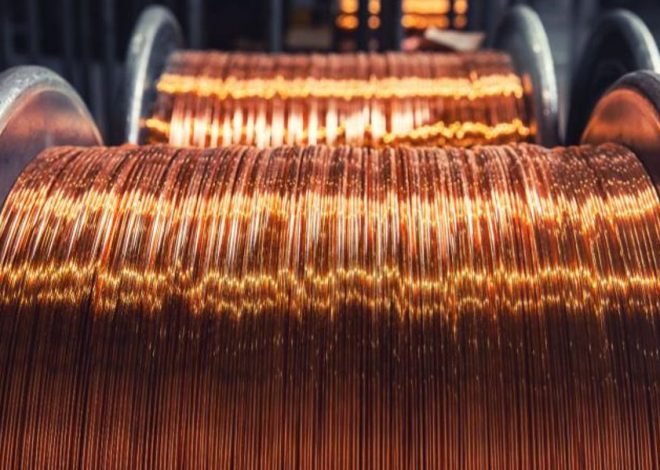
Worth has Proven Up in Japanese Shares all These Whereas.
I used to be studying this piece from worth home Verdad titled: Diverging Destinies in Company Japan
I assumed what’s shared is fascinating for my colleagues Isaac Ong and Choon Siong. Not everyone seems to be fascinating in these nerdy stuff but when I acquired the time, it’s good to do some work. Not many would realized that there are some inventory market reforms that’s presently translating to some actual efficiency enchancment in Japan equities these previous yr.
Japan has undertaken vital structural company reforms in recent times. These embrace enhanced itemizing standards by the Tokyo Inventory Alternate (asking listed corporations to extend their price-to-book (P/B) ratios, to spice up capital effectivity and profitability). The decision for improved capital effectivity has led to a deal with boosting shareholder returns, and file share buybacks in 2023. Returns on fairness (ROE) and P/B ratios have elevated following these reforms. – LSEG
Saying is one factor however among the corporations in Japan are actually taking actions. For too a few years, there are corporations that commerce at beneath their e book worth, holding a whole lot of money and all of this retains the return on fairness low.
Nations are trying over on the USA and their inventory market with a special eye. Maybe a vibrant inventory market has another makes use of.
This can be a motive for Singapore to check find out how to revitalize their market (see… they’re normally gradual to this. Have to attend for others to do it then get concepts from them. Can’t provide you with concepts themselves or their concepts find yourself fairly jialat.)
Naoki explains that Verdad determined to make use of pure language processing to look by means of all of the listed firm’s official disclosures in addition to use Chat GPT4 to take a look at linked supplies on related websites for what they are saying about enhancing shareholder worth.
For analytical consistency, we thought of solely these plans that specified a measurable goal—corresponding to elevating the dividend payout ratio from 30% to 50% for the subsequent yr, repurchasing shares value ¥10 billion within the subsequent three years, or decreasing cross-shareholdings to 10% of internet belongings inside 5 years—as tangible. In contrast, we categorized generic or open-ended statements—corresponding to sustaining steady dividends, repurchasing shares “as needed,” or making efforts to scale back cross-shareholdings—beneath obscure commitments.
The chart beneath illustrates how variations within the actions taken by corporations with a P/B ratio beneath 1.0 affected their inventory efficiency over the 2 years following the TSE’s request:


We are able to see that there’s some correlation between the share efficiency and the diploma of written disclosures that they’ve put out.
Now, there are corporations with a lot money and long run investments with cross-holdings on their steadiness sheets. If they’re able to execute on what they are saying, then they might notice a whole lot of worth. And markets being forward-looking would accord these corporations with greater worth at the moment.
Verdad did the identical as earlier than however separate the businesses the place their money and long run investments are much less or greater than their market cap.


We are able to see an actual distinction.
I suppose the most important alternative is that if they will cut back the cross-holdings. Within the native context, corporations like Jardine Matheson could come to thoughts.
The Worth and Small Issue is Most Seen in Japan Inventory Markets
This Japan reform implies that traders (lengthy earlier than this submit) would profit from discovering corporations whose steadiness sheet power present extra worth than the place they’re buying and selling at.
If we are able to systematically purchase cheaper corporations primarily based on these metrics, we’d do effectively. Granted these will not be the normal low-PE, low-PTB metrics. You do have to look at corporations deeper after the preliminary display screen.
I assumed why not take time to evaluation how the Japan markets have carry out.
I’ve fairly a number of totally different slices of information concerning the Japan inventory market from 1999 to 2025 (25 years) however I assumed lets additionally see how they’ve carry out prior to now ten years. I additionally included some Dimensional analysis indexes (which we can not put money into. You may have a look at them as in the event that they run the identical technique final time, how would the efficiency be):


Examine to the MSCI World, the compounded returns of Japanese shares are extra muted.
For a similar 25-year interval, the MSCI World Index did 6.34% p.a. on an annualized foundation and 402% cumulative. so MSCI Mix of three.8% and 167% is far decrease. If you happen to put money into the small and medium corporations (SMID), its nearer with 5.2% p.a. and 273%. If you happen to go for Japan small cap, its 5.5% p.a. and 306%.
The smaller corporations is greater return.
You may equal the efficiency of the MSCI World should you put money into the cheaper inventory SMID and Small cap shares.
In reality, the MSCI Small Worth did 7.4% p.a. and 415% which is healthier than the MSCI World.
The final 10 years have been tougher, however we are able to usually see worth shares to be doing higher than the mix for every dimension class.
The Dimensional analysis indexes look rattling steroid however the one Dimensional fund in Japan occurs to be within the US and it’s doing 5.8% p.a. for the previous 10 years. The fund is incepted in 1986, earlier than the Japan crash for 30 years. Since incepted the fund in1986, the fund did 5.2% p.a. over the previous 39 years. I believe that’s fairly not dangerous contemplating of us hold saying had you put money into Japan at a excessive, you’d solely be making a living only recently!
May we do higher with blended?
WisdomTree has a Japan SmallCap Dividend Fund (DFJ) that’s incepted in 2006. The ten yr efficiency over the identical interval is about 6.1% p.a., which is above the 5.9% p.a. for MSCI Small Cap Worth from 2015 to 2025.
I found a LSV Asset Administration with a Japan Small Cap Worth with the next efficiency:


Time interval is barely totally different however rattling stable should you ask me however this fund is small (106 million Yen)
Doing small cap worth in Japan is few and much between.
The Avantis World Small Cap Worth UCITS Fund (AVGS) has 11% of the weighting in Japan. It will likely be fairly respectable if you’d like a scientific technique that has publicity to UK and Japan small cap worth except for the US one.
Finally, the purpose won’t be that small cap worth will all the time do higher but it surely provides you a chance to. For these of us who has a crystal ball, they might have invested patiently in Nvidia in 2013 earlier than all of the loopy climb and be capable to FI with Nvidia.
However not all of us can have crystal ball and there’s each probability in 1999 that Japan will do decently effectively and whereas it didn’t (3.8% p.a. over 25 years), tilting in the direction of smaller and cheaper corporations give a possible probability that it might.
If you wish to commerce these shares I discussed, you possibly can open an account with Interactive Brokers. Interactive Brokers is the main low-cost and environment friendly dealer I take advantage of and belief to speculate & commerce my holdings in Singapore, the USA, London Inventory Alternate and Hong Kong Inventory Alternate. They assist you to commerce shares, ETFs, choices, futures, foreign exchange, bonds and funds worldwide from a single built-in account.
You may learn extra about my ideas about Interactive Brokers in this Interactive Brokers Deep Dive Sequence, beginning with find out how to create & fund your Interactive Brokers account simply.


